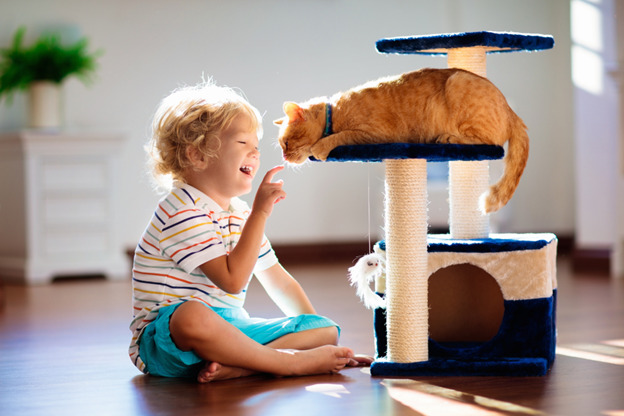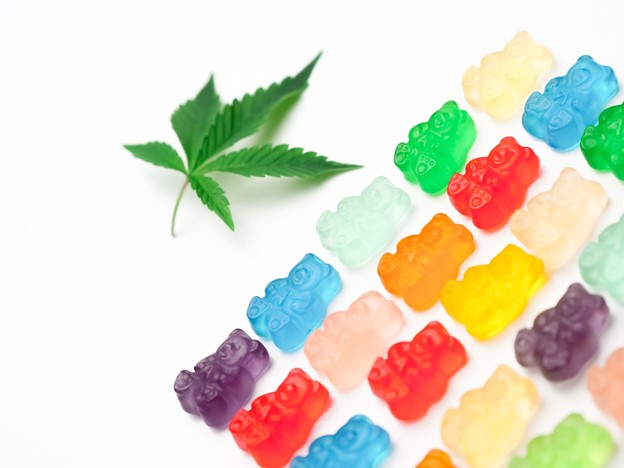Between 2017 and 2021, cases of accidental marijuana edible ingestion by children 5 and under rose 1,375%. Many adults have cannabis edibles in their homes for recreational or medicinal use, and it’s crucial for consumers–especially with children and pets–to take extra precautions.
Edibles can look just like regular treats, making them easy to mistake for candy, cookies, or gummies. Accidental consumption can lead to serious health risks, including confusion, drowsiness, vomiting, and in severe cases, hospitalization.
To keep your loved ones safe, follow these essential tips for storing and consuming marijuana edibles responsibly.

Store Edibles Securely
- Use childproof containers: THC-containing products are now required by law to be sold in child-proof packaging that is not enticing to kids. However, don’t assume that your child won’t be curious or that a determined toddler won’t be able to open packaging. Do not transfer your edibles to another container.
- Lock them away: The best way to ensure children and pets do not accidentally ingest marijuana edibles is to ensure they are never able to access them. Store edibles in a locked cabinet, drawer, or safe that children and pets cannot access.
Label Clearly
- Avoid confusion: If you must transfer your edibles to another container, label it clearly with “THC” or “NOT for kids.” This helps ensure you don’t forget where your edibles are stored or what’s in the container.
- Separate from other snacks: Store marijuana edibles in a completely different area from regular food and pet food.
Consume Mindfully
- Do not consume edibles in front of children or pets: Animals are curious and may try to grab what you’re eating. Kids are always watching (and imitating) adults, and if they see you eating edibles, they’ll probably want to try it too. Access and consume edibles where your kids can’t see you, so they don’t know where you store them.
- Know your dose: If you’re new to edibles, start with a low dose and wait at least two hours before taking more. Overconsumption increases impairment, making it harder to respond to emergencies with children and pets.
- Don’t drive or care for children while impaired: This should be a no-brainer, but edibles can have delayed effects, leading to unexpected impairment. Plan accordingly to ensure a safe environment for your family.

Educate your household and visitors
- Talk to your kids: Age-appropriate conversations about the dangers of THC and other substances can help prevent accidental ingestion.
- Inform caregivers and visitors: Babysitters, grandparents, and other guests should know about proper storage in your home and in theirs and the risks of accidental exposure.
Know what to do in an emergency
If your child or pet accidentally consumes a marijuana edible, you’ll need to react quickly. Although you may not see symptoms of ingestion until hours after a child has eaten an edible, the sooner you act, the safer your child will be.
- Know the signs – Sleepiness, slurred speech, anxiety, paranoia, red eyes and changes in coordination or demeanor are some of the most common signs a child has ingested cannabis. Signs of an overdose in children and pets include difficulty breathing and seizures, which can lead to coma and even death. Because children and pets are much smaller than the adults edibles are formulated for, they are much more susceptible to adverse effects.
- For non-urgent symptoms – If you suspect your child has ingested marijuana, but their symptoms are mild – or if your child is symptom-free but you know they ingested marijuana – contact your pediatrician and/or Poison Control at 1-800-222-1222. If possible, have the edible packaging handy so you can provide the exact dosage of THC.
For animals, contact your pet’s veterinarian right away.
- Call 911 – If your child is having seizures or having trouble breathing, call 911 or go to your nearest emergency room immediately, as these symptoms are life-threatening.
- Make a plan to keep this from happening again – If you accidentally left your edibles out, your child or a pet was able to access them even though you thought they were out of reach, or someone else gave your child or animal access to edibles, reevaluate your safety plan to avoid future incidents.
Are CBD edibles as dangerous to children as THC edibles?
Cannabidiol (CBD) is not psychoactive the way tetrahydrocannabidiol (THC) is. CBD does not cause the high feeling that THC does and is far less likely to cause adverse reactions in children.
However, there have been instances where THC was discovered in edibles that were labeled as “CBD only,” so it is recommended that you speak with Poison Control and monitor your child closely if they ingest a CBD product. In addition, as with THC, each individual metabolizes CBD differently, and there is one confirmed case of a child found unresponsive and hospitalized due to a CBD overdose.
Make the Right Call – for your babies and “fur babies.” Have any additional tips or experiences to share? Send them our way so we can share them on social media!
No DUI NoCo encourages all of our readers: Educate yourself about how alcohol and other substances affect you and how you can avoid driving impaired – take charge of your future. Make the Right Call.
Follow No DUI NoCo on Facebook, Instagram, and Pinterest for more ways you can combat impaired driving in our community.
![Partners [Logo Reversed]](https://poweredbypartners.org/wp-content/uploads/2020/06/partners-horiz-no-tag-sm-rgb-color-purple.png)